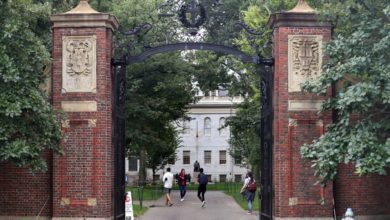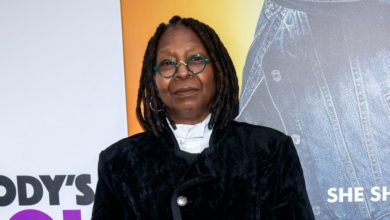South Asian Woman’s Killing Sparks Community Reflection

YouSania Khan spoke openly on TikTok in the months that passed before she was fatally shot by her husband. Not only did she talk about the backlash from her family and community members, but about how it affected her ability to share her story. “Going through a divorce as a South Asian woman feels like you failed at life sometimes. The way the community labels you, the lack of emotional support you receive and the pressure to stay with someone because ‘what will people say’ is isolating,” Khan wrote in a TikTok posted in June. “It makes it harder for women to leave marriages that they shouldn’t have been in to begin with.”
Chicago police reported that they discovered an unresponsive 29-year-old woman and 36-year-old man at a home in the city’s Streeterville neighborhood around 4:30 p.m on Monday. The head injuries were fatal. Both victims sustained gunshot wounds. According to police, law enforcement officers are still looking into the case. The Cook County medical examiner’s office listed Khan’s death as a homicide and her estranged husband Raheel Ahmad’s death as a suicide.
According to police in Alpharetta Georgia, Ahmad’s relative contacted them to report Ahmad missing. The agency then contacted Chicago police for a welfare check and was eventually found.
The news of Khan’s death has prompted conversations among South Asians in the U.S. about the ways in which their communities often stigmatize leaving marriages—even dangerous ones. “In South Asian communities, there’s this concept of saving face and preserving family honor—not bringing shame to the family. Those things are prioritized over an individual’s safety,” says Neha Gill, executive director of Apna Ghar, a Chicago-based human rights organization that focuses on gender-based violence, particularly in South Asian communities in the U.S. Gill says that many of their clients face similar challenges when it comes to leaving their partners, because of the blowback they get from their own families and communities. “This is a community wide issue and the community definitely needs to be reflecting and looking at it in that way and not just saying: ‘Oh, that poor girl, or her family didn’t do this.’”
Khan was a first-generation child of Pakistani Muslim immigrants and a passionate about her job as a photographer; “my life truly began the day I purchased my first DSLR,” she wrote on her website. Born in Chattanooga Tennessee, Khan loved hiking. With her husband, she moved to Chicago in June 2013. She loved to travel and worked as an airline attendant.
Gabriella Bordó, one of Khan’s best friends, says she had just landed in Chicago and was riding the subway to Khan’s place when she found out the news. Both had just signed a lease to share a Chattanooga home. Bordó had gotten Khan’s bedroom there ready for her arrival and flew to Chicago to help her finish packing. The plan was to spend a night in Chicago and then travel down South in a UHaul. “Sania was in my future. I had at least the next few years, knowing that I wasn’t going to be alone and I was going to have my partner in crime next to me,” she says. She can’t imagine stepping foot in the Chattanooga house now, she adds.
Bordó loved how Khan would sometimes say “duuuude” and “bruuuuh” like a “total frat boy.” She would often FaceTime Khan after nights out. “Wherever my heart wanted to be—if I wanted to hike or kayak, she’s the friend who would say of course, let’s go. I’m the same way. We were that for each other.”

Sania Khan and Gabriella Bordó pose for a shoot in Joshua Tree, California on March 25, 2022.
Wandermoore Photos and Lily & Horns
Throughout their friendship, Khan spoke with Bordó about the same issues related to divorce and community acceptance that she would post on TikTok, she says. “[Khan] was encouraged to stay, pleaded with to stay, by her family and ex-husband’s family,” Bordó says. “I didn’t see someone as spirited as her being so manipulated or controlled by someone but she was. He watched what she was wearing. He was wary about who she hung out with, how she presented herself.”
Dr. Samaiya Mushtaq, a psychiatrist based in Texas who has many South Asian clients and faced pushback from her community when she got divorced in 2013, says Khan’s death has been weighing on her since she read about it. In South Asian cultures, there’s often a tendency to be forced to just tolerate unhappy marriages, she says. “There’s this culturally laden idea that marriage is supposed to be the pinnacle of the next step of life… so leaving is seen as reneging on a commitment.” But divorce is often a natural and healthier ending for dysfunctional marriages, she adds.
“It’s really a beginning—of freedom and psychological safety and opportunity. It’s not a hopeless, sad, catastrophic event,” Mushtaq says. “I think it’s really a renewal for a lot of people … that’s what was robbed of her.”
Mushtaq states that divorce proceedings can become complicated because of the South Asian patriarchal culture. “Part of the issue is the upbringing of sons; they’re seen as so desired, and so incapable of doing wrong, that they don’t learn accountability and consequences.”
For Khan’s close friends, she will always be remembered as a powerful source of inspiration and positivity. “She was liquid sunshine. She made me laugh,” says Jessica Henderson-Eubanks, one of her best friends. After Khan invited Henderson-Eubanks to be her model, they became friends on Myspace.

Sania Khan & Jessica Henderson-Eubanks attending the wedding of Jessica Henderson Eubanks in Joshua Tree, California on February 26, 2022.
Casey Yoshida
“She was incredibly brave,” Henderson-Eubanks says about Khan’s decision to share her difficulties on social media. Khan often called her to confide in her. “I told her I would support her no matter what,” she says.
A month and a half ago, Khan forgot her evil eye bracelet at Henderson-Eubanks’ home. “She actually left stuff all the time at my house,” she says—so much that it became a running joke. Henderson-Eubanks claims she will now wear the bracelet every day.
Henderson-Eubanks would have been neighbors with Khan in her new home in Chattanooga, along with Bordó.
Khan had been seriously contemplating obtaining a restraining or against her husband. Many of her friends encouraged Khan to do so, she says. “She was leaving. They hadn’t lived together for a long time. It was her place of refuge. To bring her home, I was there. There was no reconciling,” Bordó says. “This man did not go there to salvage a marriage. The reason he went with his gun was not clear. He was aware that I was there. Both my and her social media are completely open to the public. It was his last opportunity and he took it.”
Read More From Time





